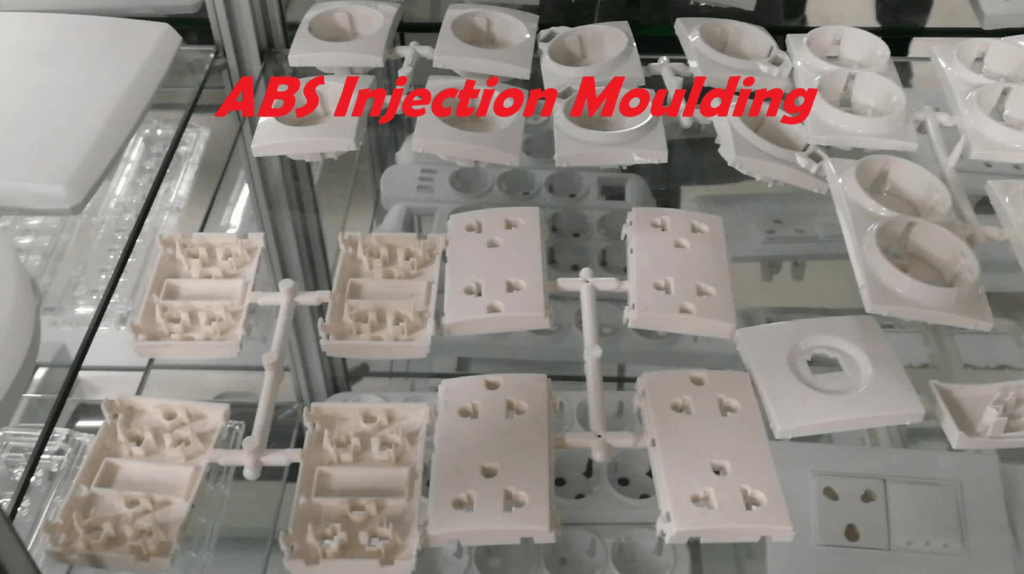Fabricantes de moldagem de plástico ABS: O que pode ser moldado usando plástico ABS
O que os fabricantes de moldagem de plástico ABS podem moldar de plástico ABS?
Acrilonitrila butadieno estireno (ABS) está entre o tipo mais comum de polímeros termoplásticos que os fabricantes de moldagem de plástico ABS usam em todo o mundo para inúmeras aplicações comerciais, domésticas e industriais.
ABS plastic offers a number of benefits, thus making it the first choice for moulding purpose. What more is that the plastic comes with robustness and outstanding quality. Its attributes further enhance its appeal. With ABS, it is possible to create almost any sort of design and shape.
In this blog post, we are going to talk about the different applications of ABS plastic. We will shed light on what the manufacturers can mold using one of the best plastic types. So, without any further delay lets us get started!

ABS Plastic Moulding Manufacturers: Molding ABS
História
If you think that ABS is a new form of plastic, you need to revisit the plastic industries’ history. You can trackback the history of ABS to the 1940s. At that time, it was popular among the manufacturers to use styrene-acrylonitrile copolymers.
O material pode aumentar a dureza em relação ao estireno, embora seja altamente adequado para uma série de aplicações. Mesmo agora, este material tem várias limitações mecânicas e físicas. Essas limitações teriam tornado o material inútil até que levou à criação de butadieno, monômero e ABS.
O ABS surgiu em 1950 e, desde então, tornou-se um grande sucesso. Fabricantes de moldagem em todo o mundo usam uma ampla gama de componentes e peças. São os polímeros de engenharia mais procurados.
Existem três componentes principais individuais de plástico ABS. A combinação dessas características únicas contribui para a eficácia e eficiência geral do produto. Eles melhoram em grande medida a qualidade do ABS.
Os três componentes: acrilonitrila, butadieno e estireno tornam o plástico ABS o melhor.
Acrilonitrila
This component is responsible for providing thermal and chemical resistance.
Butadiene
The strength of the ABS plastic comes to form this particular component. It makes it robust and sturdy.
Styrene
It adds to the aesthetic sense of the final product. The glossy finish of the final product is due to the presence of styrene.
Properties of ABS Plastic
The thermoplastic property of ABS is among its most defining characteristics. Abs thermoplastic is polymers. These polymers tend to melt after a certain temperature. They become pliable and soft. Once you give them time to cool, they would solidify again.
Assim, é possível fundir e remodelar os termoplásticos quantas vezes desejar, com pouca ou nenhuma degradação de suas propriedades mecânicas. Isso é algo que os fabricantes estão procurando hoje. Afinal, todo setor precisa ser ecológico de todas as maneiras possíveis.
Você não obteria o mesmo resultado usando o plástico termofixo. Nesse caso, quando você aquece o plástico, ele queima. Devido à sua capacidade de ser remodelado, é popular entre os fabricantes de moldagem por injeção.
Propriedades Físicas e Mecânicas
O ABS vem com várias propriedades mecânicas e físicas desejáveis. A maioria dessas propriedades é superior a vários outros materiais poliméricos populares. Algumas dessas propriedades incluem dureza, tenacidade, resistência química, resistência ao calor, resistência ao impacto, resistência à tração e resistência à abrasão.
Também é possível melhorar as propriedades específicas do ABS ajustando sua composição química. Assim, permitindo que você tenha acesso a diferentes tipos de material que são adequados para diferentes aplicações.
Algumas outras propriedades excepcionais deste material incrível incluem
- Receptivo a adesivos
- Receptivo a tintas
- Qualidades estéticas brilhantes
- Excelente usinabilidade
- Rigidez
- Força compressiva
- Isolamento elétrico
- Estabilidade dimensional
Parâmetro de injeção para produto ABS
Temperatura de Plastificação
A temperatura da resina ABS varia de 180 a 280 ° C. A temperatura exata é definida pelo tipo de matéria-prima que o fabricante utiliza no produto. Para certas aplicações, o ajuste é imperativo. Por exemplo, no caso da resina aquecida, o fabricante teria que usar uma temperatura mais alta.
However, for a general-purpose resin, the temperature needs to be lower. It is important to control and retain different temperatures throughout the injection moulding process of ABS. For example, the temperature should be between 180 to 230°C for barrel application. It should range between 190 to 220°C for the nozzle. However, in case of a high flow resin, the nozzle temperature would be between 170 to 180°C.
ABS Plastic Molding Manufacturers – Moulding Machine Injection Pressure
In most cases, manufacturers use injection pressure between 60 to 150 MPa for ABS resin melt. In the case of the injection-molded product requires a thick wall and it has a large gate size, then the injection pressure can vary from 70-100 MPa.
Likewise, when there is a longer melt flow, the injection-molded product is small and the manufacturer is using heat-resistant resin, then the injection moulding machine requires a pressure of 120 to 150 MPa.
You also need to take care of the hold pressure of the injection moulding machine. In most cases, the holding pressure of the machine is between 60 to 70 MPa. This pressure is for products that have small internal stress. In most cases, melt injection speed is usually low or medium paces.
NOTE: The Resin type has a great impact on all aspects of the injection moulding speed.
Mold Temperature
Controlling the temperature of the ABS mold is also imperative to ensure accurate and high-quality parts or components. In most cases, the coal body forming a mold of ABS is controlled within a temperature range of 40 to 80°C.
NOTE: When you use high mold temperature, it would lead to smaller internal stress of the product, better melt filling quality, and good product appearance.
Although, high-temperature molds are effective, but there needs to be an upper bound. If the ABS plastic molding manufacturers increase the mold temperature beyond the upper limit it would result in shrinkage of the product.
In addition, this product would easily be deformed once you demold it. Furthermore, the manufacturing cycle time of the product increases, thus resulting in additional energy and money. Therefore, it is imperative to ensure that the die moulding temperature for an ABS product is within range.
In general, the manufacturer keeps the temperature between 40 to 60°C.
ABS Plastic Moulding Manufacturers – Applications/ Industries
Due to the machinability of relatively low cost and exceptional properties, ABS is the perfect material for a number of applications. The use of ABS is so widespread, that you would be interacting with one, without knowing about it.
Everything from cell phone housings, radio, toolboxes, furniture, power tools, kitchen appliances, and luggage, as well as the reproduction of prototypes, is possible due to this powerful material. Its receptiveness to paints, dimensional stability, and adhesives make it an excellent choice.
The use of ABS is not limited to domestic and home products. On the contrary, several industries use it every day. Below, we have listed some of these industries.
Food Industry
FDA approves of ABS for food contact application including food packaging and appliances. Therefore, making it the prime choice of people in the food industry as well as the packaging world.
Aerospace
ABS parts are found both on the exterior as well as the interior of the areophane. They are part of different types of aircraft. A common example of these components includes cockpit visors, signage, seating parts, cargo containers, and the luggage bins.
Automotivo
The automotive industry is incorporating ABS into their cars to make them lightweight. At the same time, ABS is effective for improving fuel efficiency. Some of the common ABS automotive components include body parts, wheel covers, dashboards, and trimmings.

Pharmaceutical and Medical
Como os graus médicos do ABS melhoraram a biocompatibilidade, eles são excelentes para dispositivos de administração de medicamentos e também para alimentos. Você também encontrará o ABS um material importante para a fabricação de invólucros e caixas para vários dispositivos médicos.
Brinquedos
O ABS é extremamente comum para a criação de brinquedos infantis, pois tem uma natureza durável e não é tóxico. Por exemplo, ele é usado para criar figuras de ação, Legos ou triciclos entre outros.
Além disso, os plásticos ABS também são comuns para impressão 3D .



